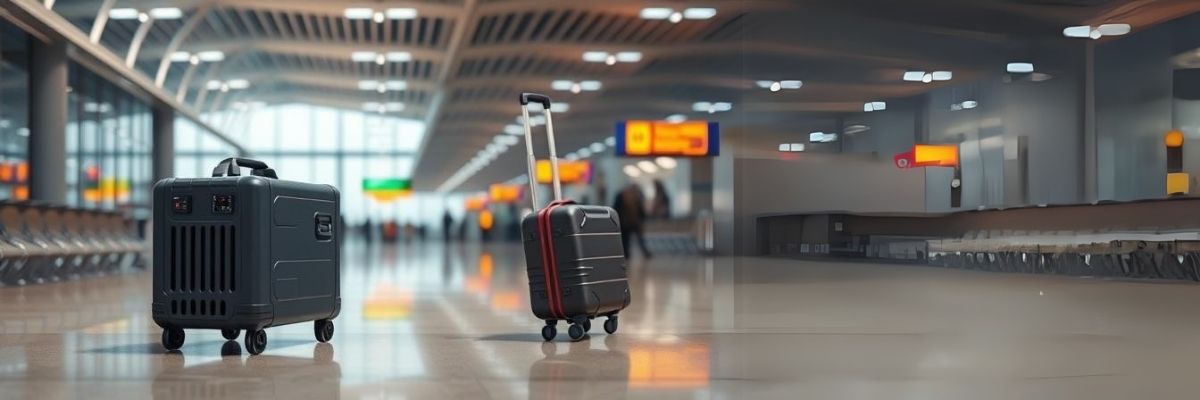
Are Portable Power Stations Allowed on Planes?
Ever boarded a plane with your phone at 2% and your laptop already dead? A portable power station can be a lifesaver mid-air or during long layovers — but are portable power stations allowed on planes international? In this guide, we break down everything you need to know about flying with a power station, including airline rules, battery limits, and travel tips.
Not sure which power station is right for you?
Take the quiz!
Portable Power Station Airline Rules
Are Portable Power Stations Allowed on Planes International?
Yes, portable power stations are allowed on international flights — but only under strict battery safety rules. Most airlines follow IATA guidelines, which cap battery sizes for carry-on devices. So, are portable power stations allowed on planes international? The answer is yes, but you’ll need to make sure it falls within the required watt-hour (Wh) limits.
Watt-Hour (Wh) Limits to Know
- Under 100Wh: Allowed in carry-on without prior approval.
- 100–160Wh: May require airline approval; check ahead.
- Over 160Wh: Not permitted on commercial flights.
Tip: If your device doesn’t list watt-hours (Wh), use the formula: Wh = volts × amp-hours (Ah).
Carry-On Only
Never place your power station in checked baggage. Due to fire risks, lithium batteries must be accessible in the cabin.
Airline Policies Vary
Each airline might interpret these limits slightly differently. Before flying, confirm via:
- Your airline’s portable electronics policy page
- Customer support (especially for 100–160Wh devices)

Can You Take a Solar Generator on a Plane?
Yes, you can take a solar generator on a plane, as long as the battery complies with airline battery regulations. A solar generator typically includes a portable power station plus solar panels or charging cables. So, can you take a solar generator on a plane? Absolutely — just make sure the power station battery is within airline limits and packed in your carry-on.
How Airlines Treat Solar Generators
- Solar panels: Allowed if compact or foldable. Treated like standard electronics.
- Battery portion: Must follow the same Wh rules as any portable power station.
Portable Power Station Tips for Air Travel
What to Look for in a Flight-Safe Portable Power Station
Pick a Compact, Lightweight Unit
Choose travel-friendly models that are light, fit under your seat, and clearly label watt-hour capacity.
Certifications and Labels Matter
- Battery type: Lithium-ion preferred
- Visible watt-hour rating
- Certifications: CE, FCC, UN 38.3
Tips for Packing and Security Screening
Protective Packing
Wrap your power station in soft clothing or use a padded case. Don’t pack it loosely — it should be secure inside your carry-on.
Be Ready at Security
- Inform security officers you’re carrying a battery device
- Be prepared to remove it for inspection
- Have the watt-hour rating visible or printed if asked

Portable Power Station Options for Devices on the Go
Use Built-in Airplane Power Outlets
Modern aircraft often include seat outlets, but not all do. Check ahead when booking and keep expectations realistic — some ports have limited output.
Power Bank Rentals on Long-Haul Flights
Some international carriers offer power bank rentals for in-flight device charging. Worth checking when flying long-distance.
Bring a Small Power Bank
Not all situations call for a full portable station. A traditional 100Wh (27,000mAh) or smaller power bank will often do the trick — no pre-approval needed.
Summary: Fly Smart with Portable Power
Are portable power stations allowed on planes international? Yes — just ensure they’re below 160Wh and carried onboard. And can you take a solar generator on a plane? Also yes — if the battery complies and you pack it properly.
Flying with portable power isn’t complicated — it just takes a little prep. Keep it light, within airline limits, and ready to show at security. That way, you’ll land ready to work, watch, or charge up for the next leg of your adventure.


